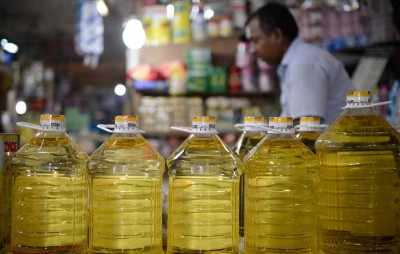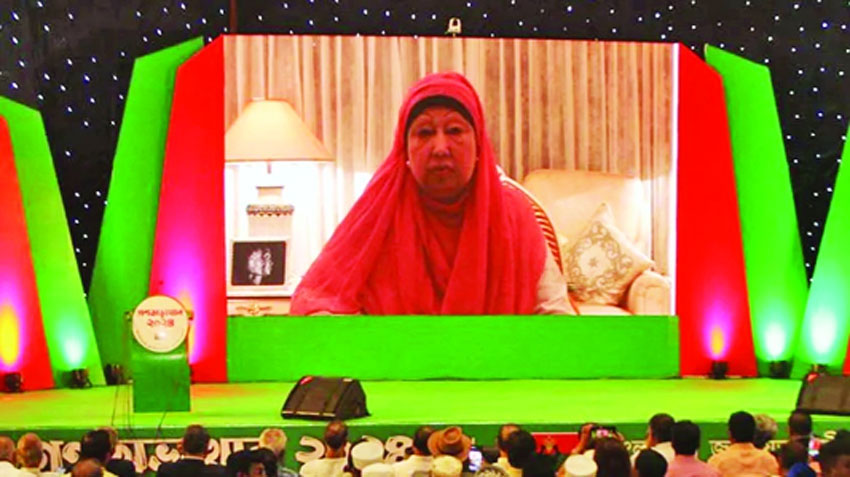- 2022-04-25 10:32:33
- LAST MODIFIED: 2026-02-13 05:04:02
Cooking oil market heats up again
Citizentimes Online Desk

The country’s cooking oil market was once again in turmoil, experiencing an abnormal hike of Tk500 per maund (37.32 kilograms) in just two days.
Market insiders said that Indonesia, the world's largest exporter of palm oil, has recently announced that it will stop exporting all kinds of cooking oil. Indonesia's announcement to halt palm oil exports led to a sharp rise in cooking oil prices in the country's wholesale markets, they also said.
As a result, traders are demanding around Tk500 more per maund in the last two days, due to declining supply. Earlier, in order to control the country's cooking oil market, the government waived 30% value-added tax (VAT) on import and production in two phases, but palm and soybean oil prices have been rising again since last week.
Last Friday, the Indonesian government announced a halt of global palm oil exports to meet local demand and bring prices under control. After that, Bangladeshi trading companies stopped trading from Saturday evening and, on Sunday, wholesalers from different parts of the country could not buy cooking oil from Khatunganj and Moulvibazar as per their demand.
However, when international market transactions began on Monday, domestic prices were determined by observing the booking price. Due to rising prices, transactions were lower than usual.
According to traders from the Khatunganj wholesale market, the wholesale price of cooking oil increased due to uncertainty over the supply crisis.
In Khatunganj, the largest wholesale market for consumer goods in the country, the price of palm oil increased by Tk500 more per maund on Sunday, compared to the previous day. On Monday, a limited range of palm oil was sold at the SO (supply order) stage from Tk6,150-6,200 per maund.
Moreover, at the wholesale level (cooking oil extracted from mill-gate), the price was Tk7,000 per maund. Soybean oil was sold at Tk7,000 per maund at the SO stage whereas it was sold at Tk7,500 per maund at mill-gate. Shahidul Islam, a trader from Khatunganj, said that the trading of cooking oil has almost stopped since Saturday evening.
Though the transaction started on Sunday, it was Tk500 more per maund than the previous day. With the increase of Tk500 in one day, the sales have also decreased, he added.
He also claimed that there was no other way but to take initiative in the market of cooking oil as the price of oil is Tk2,000 more per maund than the official price.
Statistics
According to the relevant data, 87% of Bangladesh's demand for palm oil is imported from Indonesia, while the remaining 13% is imported from Malaysia. Moreover, 76% of domestic demand for soybeans is imported from the Latin American country Argentina and the rest of the soybeans are imported from Paraguay (13%), Brazil (9%), and others (2%).
The government and sector stakeholders are also responsible for the instability of the cooking oil market in the country due to its single reliance on only two countries, said, market insiders. According to the World Bank, the average price of crude palm oil for the year from January to December 2019 was $601 per tonne.
In March last year, the booking price of the same palm oil rose to $1,777 per tonne. Moreover, the soybean booking has increased from $765 to $1,957. Global soybean and palm oil prices rose in April due to the crisis and rising demand, said the market insiders.
Golam Maula, president of the Bangladesh Wholesale Edible Oil Business Association, said that traders in the wholesale market are facing the biggest crisis in the cooking oil market.
“Traders have to sell at higher prices if global prices rise, supply crisis from mills occurs and they need to buy from mills at higher prices. Though the system is responsible for the price hike, the administration always harasses the wholesale market,” he added.
He also said that if the millers stockpile the cooking oil, then there is nothing for the association to do. “The government should provide incentives for the import of cooking oil along with the changes in tariff structure,” he added.
Lower taxes
However, Bangladesh Trade and Tariff Commission (BTTC) suggests cuts in taxes on sunflower, olive and canola oil to help dilute dependence on widely consumed soybean and palm oil.
Sunflower, olive and canola oil are expensive in Bangladesh because of higher duty and taxes and tariff value and those are usually consumed by the affluent section of society.
The BTTC recommended rationalizing the import duties on the 'expensive' cooking oil in line with the exemptions offered to soybean and palm oil, as a fiscal solution to the market overheating.
In an official correspondence to the Ministry of Commerce, the BTTC has proposed cuts in duties and taxes on sunflower, olive, and canola oil in the upcoming budget for the fiscal year 2022-23.
The commission feels that a cut in dependence is necessary due to the volatile price situation of soybean and palm oil on the international market and resultant high rates at home.










